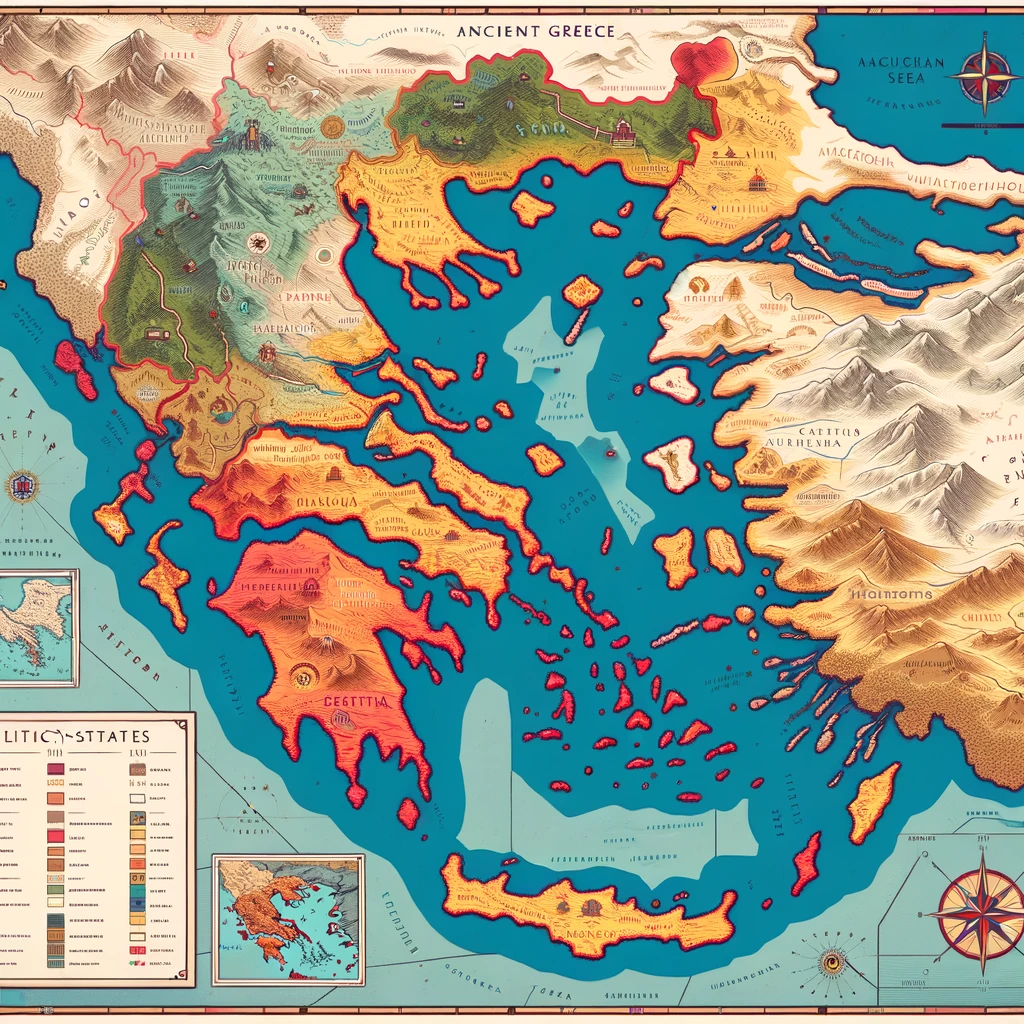At its peak in the 5th century BCE, ancient Greece was not a centralized nation but rather a collection of hundreds of independent city-states. Understanding the political structures and systems across these various power centers is key to analyzing the vibrancy and ultimate decline of Greek influence on the regional and even global stage.
This comprehensive guide will dive deep into the diverse political geography shaping how leadership dynamics between places like Athens, Sparta, Thebes and Corinth catalyzed alliances and military conflicts including the infamous Peloponnesian Wars. Evaluating the experiments with democracy, oligarchies, tyrannies, and militia power balances across these city-states illuminates why no singular Greek empire could withstand rising threats from the Macedonians and later Roman Republic.
The legacy left behind, however, by ancient Greek political diversity has continued informing governance ideologies over thousands of years of human civilization.
The Role of Geography in Cultivating Independent City-States
The mountainous topography of the Greek peninsula combined with hundreds of islands scattered across the Aegean and Ionian seas were key factors that cultivated an insular existence for most city-states rather than a unified nation. The islands and intense regional separation of valleys and ranges made overland travel extremely arduous. As a result, naval travel became the easier transportation route, facilitating vital trade networks between coastal city-state powers.
This geography enhanced cultural differences and political insularity between specific clusters of city-states, rather than convergence around a capital or shared national identity. The sea also brought new perspectives and allies from lands like Asia Minor and Northern Africa. At its height, epicenters of political power were able to exert economic, cultural and militaristic influence across surrounding countryside and islands. But the same terrain made long-term unity or centralized rule a challenge.
Instead, hundreds of independent city-states emerged as Greeks expanded, each with distinctions in dialect, customs, governance approach, patrons of arts and culture, and mechanisms for mobility between classes. Navigating regional dominance and control over areas like the Peloponnese and Delian League involved mastering the geography to project naval strength. These localized political clusters cultivated starkly different ideologies.
Profiles of Prominent City-States and Governance Models
The most basic but significant political unit in Ancient Greece was the “polis” – city-state. Instead of a central authority, city-states wielded economic, military and cultural influence across surrounding villages/farmlands. Among the hundreds, several major city-states stood out for innovations in governance and shifts in territorial control:
Athens:
Pioneered an early democratic system enabling citizen participation through direct voting on laws. Limiting oligarchic control nurtured arts, sciences. Building the Delian League naval alliance expanded influence.
Sparta:
Ruled by kings balanced with councils of elders supporting a militaristic oligarchy focused on discipline and land conquests rather than arts/culture. Conquered Messina to control Peloponnese peninsula.
Thebes:
Often at odds with Athens over control of Boeotia region. Allied with Sparta then switched allegiance, defeating Sparta in 371 BCE. Had periods of monarchic and oligarchic rule.
Corinth:
Wealthy aristocratic republic benefitting from naval trade networks. Alignments shifted between Spartan and Athenian alliances to retain independence while dominating commerce.
The diversity in systems of rule, mechanisms for retaining/transferring power, key patrons, and strategic priorities across these influential hubs provides insights into Ancient Greek political experiments with monarchy, oligarchy, limited democracy and tyranny.
Shifting Alliances and Years of Regional Conflict
Much of Ancient Greek history was characterized by shifting alliances between city-states as the balance of power ebbed and flowed. Smaller conflicts would spark greater conflagrations as networks of support built up around certain epicenters of power like Athens and Sparta.
One major turning point was the Peloponnesian War pitting a naval empire led by Athens and its Delian League against Sparta and allies like Corinth in the Peloponnesian League. What began as a conflict over Corcyra escalated drastically, depleting resources for nearly three decades in a struggle for supremacy. Superior Spartan land forces used raids and sieges to cripple Athenian agriculture and install oligarchic regimes in captured areas.
The result was a depletion of economic and defense capabilities more broadly across Greece, allowing the ascendant Macedonians under Philip II to ultimately gain control by 338 BCE, extinguishing true independence of formerly dominant city-states like Athens, Sparta and Thebes.
This pattern of temporary allegiances forming along oligarchic or democratic lines continued eroding centralized power. Infighting made Greece unable to counter external threats, hastening the demise of self-determined Greek political influence.
The Legacy of Experiments with Governance
While division among competitive city-states ultimately left Ancient Greece unable to resist external conquest, the political diversity across influential poleis generated lessons shaping governance for millennia.
Most notably, Athens demonstrated how central democratic councils and voting institutions can distribution decision-making while Sparta highlighted effective checks against authoritarian rule. Rule bound by shared laws, generational knowledge transfer through education, civic participation, and social mobility pathways became enduring themes explored first in the cauldron of political thought across distinctive Greek regions.
Through philosophy and structures, the investigations with blending oligarchy, democracy, militarism and meritocracy within different Greek city-state models established the foundations for conceptualizing modern democratic and republican thought. These influences remain apparent in long enduring governance ideologies and debates over rights, representation, citizenship, voting eligibility and more.
By understanding the politically diverse landscape across Ancient Greek city-states, modern scholars gain insights into the triumphs, pitfalls and ongoing progress driving governance experiments to this day. The vibrant legacy of political map ‘s enduring influence continues to inform how we confront challenges of state power and human cooperation now 2,500 years later.
Frequently Asked Questions About the Political Landscape of Ancient Greece
Q: Were there any examples of full democracies in Ancient Greece besides Athens?
A: Athens represented one of history’s first experiments in direct democracy, but a few other Greek city-states had early democratic characteristics to varying degrees. In Syracuse, an assembly of citizens could vote on policies. Some areas of Arcadia implemented democratic councils and public debate formats that inspired other poleis.
Q: How did tyrants and oligarchs typically gain power over city-states?
A: Tyrants often rose to power on platforms of enacting reforms and policy changes to benefit everyday citizens against ruling aristocracies. However, they later resorted to more authoritarian control. Oligarchies maintained influence through family/wealth dynasties, especially in areas relying on agriculture like Thessaly and Crete during the Archaic Period.
Q: What was the legacy of key military alliances like the Peloponnesian League?
A: The Peloponnesian League led by Sparta did achieve short-term dominance through the Peloponnesian Wars. However, infighting and shifting allegiances ultimately weakened Greek city-states’ ability to rule independently long-term against external threats like ascendant Macedonia and Rome. But the codifying of alliance structures influenced future diplomatic relations in the region.
Q: Did any sites of major Oracle cults play a role in politics?
A: Some major oracle cult sites did influence local policies – legend held that Lycurgus consulted the Oracle at Delphi while developing Sparta’s constitution. Consulting oracles before battles or state decisions demonstrated the continuing influence of spiritual forces on political leadership.

